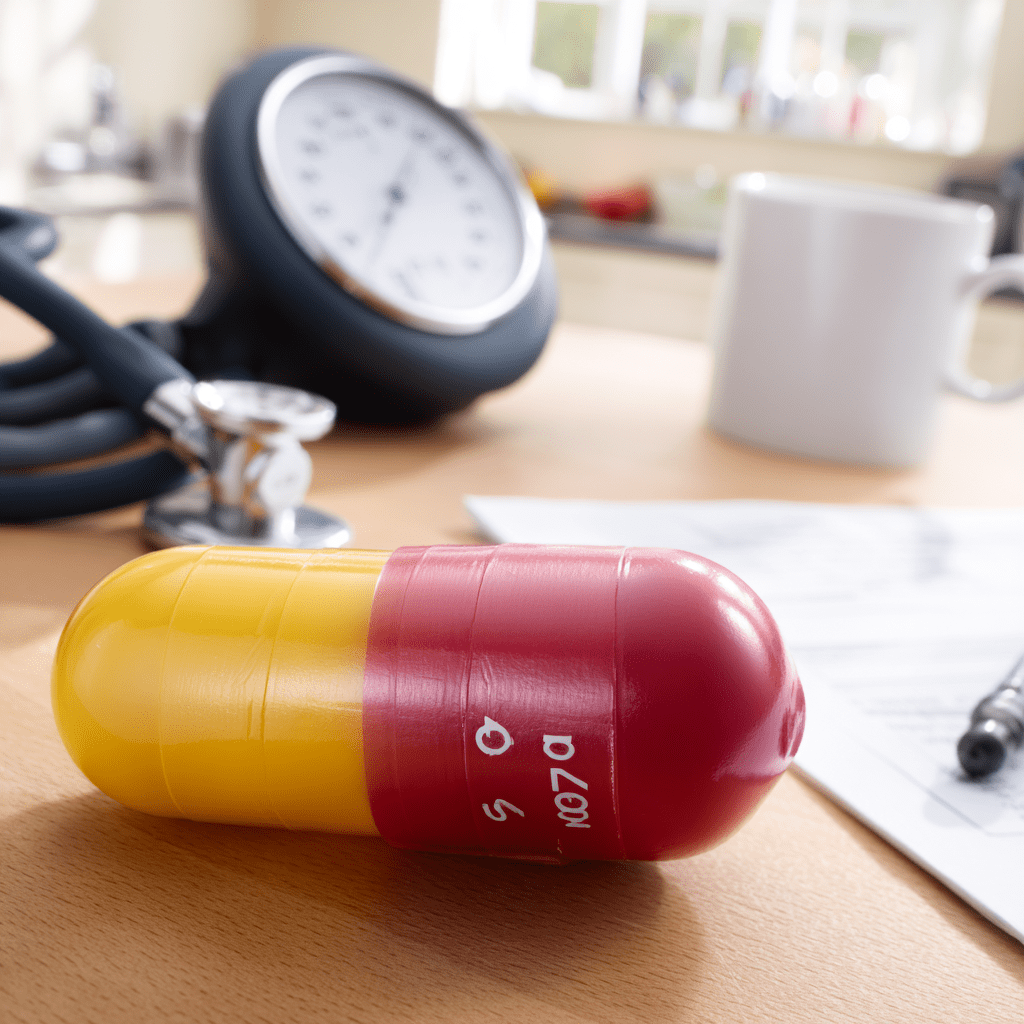Introduction
It’s a frustrating and often perplexing experience. You start a new medication for high blood pressure or heart failure, and a few weeks or months later, you develop a nagging, dry cough that simply won’t go away. This persistent cough can interrupt sleep, make conversations difficult, and leave you wondering if something is wrong with your lungs. If your doctor has prescribed an ACE inhibitor, there’s a good chance this annoying side effect is a direct result of your medication. This cough is not a sign of a lung infection or a worsening heart condition; it’s a specific, well-understood pharmacological reaction. This guide will explain the science behind the ACE inhibitor cough, detail what it feels like, and provide clear, actionable steps for finding relief.

What Are ACE Inhibitors?
ACE inhibitors are a class of widely prescribed medications used primarily to treat high blood pressure and heart failure. They are also used to protect the kidneys in people with diabetes and can be part of the treatment plan after a heart attack.
Common examples of ACE inhibitors include:
- Lisinopril (Zestril, Prinivil)
- Enalapril (Vasotec)
- Ramipril (Altace)
- Captopril (Capoten)
Their name, ACE inhibitor, is the key to understanding how they work. The “ACE” stands for Angiotensin-Converting Enzyme. This enzyme’s job is to convert a substance called angiotensin I into angiotensin II. Angiotensin II is a powerful hormone that causes blood vessels to constrict and narrow, which increases blood pressure. By blocking the ACE enzyme, these drugs prevent the production of angiotensin II, allowing blood vessels to relax and widen, which in turn lowers blood pressure and makes it easier for the heart to pump blood. [1]
The Scientific Explanation
So, if ACE inhibitors work on blood pressure, why do they cause a cough? The answer lies in the dual function of the ACE enzyme and a substance called bradykinin. While its primary role in the body is to regulate blood pressure, the ACE enzyme also plays a secondary, non-cardiovascular role: it helps break down bradykinin, a natural inflammatory compound in the body.
Here is the simple breakdown of the mechanism:
- When you take an ACE inhibitor, the drug blocks the ACE enzyme to prevent the formation of angiotensin II, successfully lowering your blood pressure.
- However, this blocking action also prevents the ACE enzyme from breaking down bradykinin.
- As a result, levels of bradykinin begin to build up in the body, particularly in the lungs and airways.
- This accumulated bradykinin can then irritate nerve endings in the respiratory tract, triggering a persistent, dry, and non-productive cough. [3] The cough is often described as ticklish or scratchy in the throat.
This cough is a common side effect, affecting up to 20% of people who take ACE inhibitors. It is often more common in women, people of African descent, and non-smokers.
What to Expect from the Cough
The characteristics of an ACE inhibitor-induced cough are fairly distinct. Knowing what to look for can help you and your doctor determine if the medication is the cause.
- Onset: The cough doesn’t usually start immediately. It can appear anywhere from a few hours to several months after you begin taking the medication. On average, it starts within a few weeks to a few months of use.
- Nature: The cough is typically dry, meaning it produces no mucus or phlegm. It is often described as a hacking, persistent, and irritating cough.
- Triggers: The cough often worsens with talking, laughing, or lying down. It may feel like a constant itch or tickle in the throat that you can’t get rid of.
It is important to remember that while the cough is annoying, it is not a dangerous side effect. It is not a sign of lung damage or a serious medical condition.
Solutions and Management
If you suspect your ACE inhibitor is causing your cough, the most important thing to know is what to do next.
1. Do Not Stop Your Medication on Your Own.
Never stop taking your ACE inhibitor abruptly. Abruptly stopping any blood pressure medication can cause a dangerous spike in your blood pressure, which could lead to a stroke, heart attack, or other serious cardiovascular events. [5]
2. Talk to Your Doctor.
The very first step is to schedule an appointment with your prescribing doctor. They will need to confirm that the cough is, in fact, caused by the ACE inhibitor and not by another condition, such as allergies, a viral infection, or a different medical issue.
3. The Most Common Solution: A Medication Switch.
Once your doctor has confirmed that the ACE inhibitor is the likely culprit, the most effective and common solution is to switch to a different class of blood pressure medication. [6] The ideal replacement is often an Angiotensin II Receptor Blocker (ARB).
Why ARBs are an Excellent Alternative
Angiotensin II Receptor Blockers (ARBs), such as losartan (Cozaar), valsartan (Diovan), and candesartan (Atacand), work similarly to ACE inhibitors to lower blood pressure, but they do so in a different way. Instead of blocking the ACE enzyme, they block the receptors that angiotensin II binds to. [7]
By doing this, ARBs bypass the ACE enzyme entirely, so they do not cause the buildup of bradykinin. As a result, they do not cause the ACE inhibitor cough. They are just as effective at lowering blood pressure and are generally a seamless transition for most patients.
In most cases, a person’s cough will resolve completely within a few days or weeks of switching from an ACE inhibitor to an ARB.
